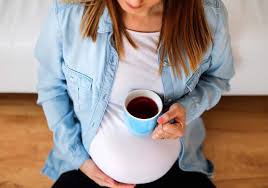Does caffeine affect your fertility?
Caffeine is considered a familiar and attractive drink for each of us. It's great to start a new day with a morning cup of coffee for an energetic working day. But for those who are planning to become pregnant, is coffee really good? Let's go with this article to find the answer.
1. Caffeine and fertility
Does caffeine really affect fertility? This question contains mixed answers. In some studies. Scientists have found a link between caffeine consumption and fertility in women. However, in other studies, this association was not found. Most experts say we don't have enough evidence to conclude with certainty that caffeine affects fertility.
Although researchers were unable to find a clear link between caffeine and fertility problems. However, we also need to pay attention to the amount of caffeine consumed. A person's safe caffeine intake is about 200 to 300 milligrams (mg) per day while they're trying to get pregnant. This is equivalent to two cups of coffee weighing 8 ounces for a single brew. If you are trying to conceive and are in the habit of drinking more than this recommended amount, consider reducing your daily caffeine intake.

Chưa có mối liên hệ rõ ràng giữa caffeine và các vấn đề về khả năng sinh sản
2. Foods and beverages containing caffeine
Caffeinated drinks are of course coffee. However, the amount of caffeine in each cup of coffee varies greatly, depending on the type of bean, how it is roasted, how it is brewed and the size of each cup of coffee you drink. For example, espresso contains more caffeine per cup. Therefore, it is often enjoyed with a smaller cup than other varieties. A full cup of coffee will actually provide more caffeine than a small cup of coffee.
To manage your caffeine intake, you also need to be mindful of other caffeinated foods and beverages such as tea, soft drinks, energy drinks, chocolate, and coffee ice cream. Caffeine also appears in herbal products and over-the-counter medicines, including those used for headaches, colds and allergies. Therefore, be sure to carefully read the labels of the products before you intend to use it. Here is a table showing the amount of caffeine in common foods and drinks:
3. Strategies to cut down on caffeine
If you have decided to reduce your caffeine intake, cut back slowly to avoid withdrawal symptoms, such as fatigue and headaches. You can start with the following strategies:
You can switch to half regular brewed coffee and half decaf. Or reduce the amount of caffeine in homemade hot drinks by brewing for a shorter time. If you like to start your day with a cup of tea, steeping a tea bag for one minute instead of five will cut caffeine in half.

Ngâm túi trà trong nước ngắn hơn giúp làm giảm lượng caffeine hiệu quả
Once you've adapted to life with little or no caffeine, you'll likely find steamed milk with a little flavored syrup as a coffee substitute to be great for you.
Although, there is not enough evidence to confirm that caffeine has an effect on fertility. However, to ensure the health and nutrition of those who are planning to become pregnant, they should use the minimum amount of caffeine recommended and control the consumption within a safe threshold.
In order to help couples plan pregnancy and ensure a safe pregnancy and healthy baby, Vinmec International General Hospital has implemented a Pre-pregnancy Care and Counseling Program with The team of experts directly examines and advises, offers pregnancy preparation plans suitable for each specific case, thereby achieving the set expectations.
Although, there is not enough evidence to confirm that caffeine has an effect on fertility. However, to ensure the health and nutrition of those who are planning to become pregnant, they should use the minimum amount of caffeine recommended and control the consumption within a safe threshold.
In order to help couples plan pregnancy and ensure a safe pregnancy and healthy baby, Vinmec International General Hospital has implemented a Pre-pregnancy Care and Counseling Program with The team of experts directly examines and advises, offers pregnancy preparation plans suitable for each specific case, thereby achieving the set expectations.
Để đặt lịch khám tại viện, Quý khách vui lòng bấm số HOTLINE hoặc đặt lịch trực tiếp TẠI ĐÂY. Tải và đặt lịch khám tự động trên ứng dụng MyVinmec để quản lý, theo dõi lịch và đặt hẹn mọi lúc mọi nơi ngay trên ứng dụng.
Reference source: babycenter.com
Bài viết này được viết cho người đọc tại Sài Gòn, Hà Nội, Hồ Chí Minh, Phú Quốc, Nha Trang, Hạ Long, Hải Phòng, Đà Nẵng.





